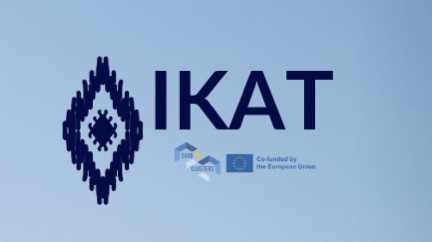Balearic Islands & Cantabria join forces to explore and enhance coastal resources
- IKAT PROJECT
- Jul 14, 2023
- 3 min read
The Balearic Islands and Cantabria join forces to explore and enhance coastal resources for the energy transition.
Cantabria will become, after an agreement with the Balearic Islands, an "experimental laboratory" for the generation of energy from the force of the waves.
The community will be the scenario chosen to develop a pilot test of the ROE (Renewable Ocean Energy) project, an initiative promoted by the Maritime and Logistics Cluster of the Balearic Islands, the company ROE and Sunwa Technologies and the University of the Balearic Islands (UIB) that It aims to generate renewable energy from the wave force of sea waves.
The General Director of Industry, Energy and Mines of Cantabria, Daniel Alvear, and the Vice President and Minister of Energy Transition of the Balearic Islands, Juan Pedro Yllanes, discussed this future collaboration between both autonomous communities this Tuesday in Palma de Mallorca to promote the energy transition in the coastal territories.
The meeting, where the maritime clusters of both autonomous communities, Ocean Renewable Energy and the UIB, have been present, has been developed in the context of the seminar 'Reduction of energy costs for the application of new technologies', which has been inaugurated by Yllanes.
Alvear has pointed out that, in terms of marine renewables, Cantabria has an outstanding track record, in addition to being, according to him, "an area of priorities" for the regional government within intelligent strategic planning.
The director of Cantabrian Industry has valued the technological capacity of Cantabrian companies and clusters linked to marine renewables and the maritime sector, the regional Executive has reported in a statement.
In addition, in the field of clean marine energy, Alvear has brought to the table the history of collaboration between Cantabria and other autonomous communities of Green Spain through the Atlantic Wind Super Cluster, where the Sea of Innovation Cantabria Cluster (SICC), Galician OFFshore Energy Group (GOE-ASIME) and the Asturias Energy Technology Consortium (AINER) to promote offshore wind energy.
"We want to transfer this same model of collaboration between Administrations with the Government of the Balearic Islands and thus promote industrial synergies that allow the development of unique projects in this area", he pointed out.
For his part. The Balearic vice-president has declared that his community is clear that the commitment to photovoltaic energy is not enough, but that it is necessary to "bet on diversification" in the energy model, but also that marine energies, such as wind and the wave.
The seminar, in addition to Illanes and Alvear, was attended by the General Director of Energy Transition and Climate Change of the Balearic Islands, Pep Malagrava; the president of the Maritime Cluster of the Balearic Islands, Iolanda Piedra; the president of the Maritime Cluster of Cantabria (MarCa), Juan Luis Sánchez; the CEO of Renewable Ocean Energy, Antonio Cañellas, and the rector of the University of the Balearic Islands, Jaume Carot.
The president of MarCa, Juan Luis Sánchez, stressed that "Cantabria is also taking a path that is firmly committed to innovative renewable energies to achieve the objective of the European Commission that advocates a climate-neutral Europe in 2050".
In addition, he has stressed that the Cantabrian Sea is an "ideal location for the generation of wave energy", for which reason "bet on it".
"The energy through the waves is a further reinforcement to the capacities of our community to be sustainable and efficient", he has said.
Her counterpart from the Balearic Cluster has presented the ROE project to the representatives of the Government of Cantabria and the MarCA Cluster.
On the proposal, Piedra has emphasized that "it does not have any impact on maritime tourism, nor on maritime transport, nautical or fishing", something that is due to the fact that the technology will be installed on the breakwaters which, he assures , "does not cause any change in the landscape or in the activity of these sectors".
ROE PROJECT
The innovative component of the ROE project focuses on the marine hydraulic turbine that the company Renewable Ocean Energy intends to build and attach with an auxiliary anchorage to the breakwaters of the ports.
The hydraulic system of this turbine has the capacity to take advantage of the energy produced by the waves when they break against the breakwaters, generating an average electricity of 15 Kw/h to 25 KW/h per unit.
In this sense, through the technology of the ROE project, the same amount of renewable energy can be produced in 100 m2 as in 1,200 m2 of photovoltaic energy, as explained by the technicians responsible for the development of this initiative.
According to the promoters of the project, its development and application in the different ports will reduce the carbon footprint, eliminate polluting emissions from the ports, noise control, a minimal visual impact since it blends in with the environment and, finally, a efficient supply of renewable energy to those currently on the market, with 24-hour energy production.




